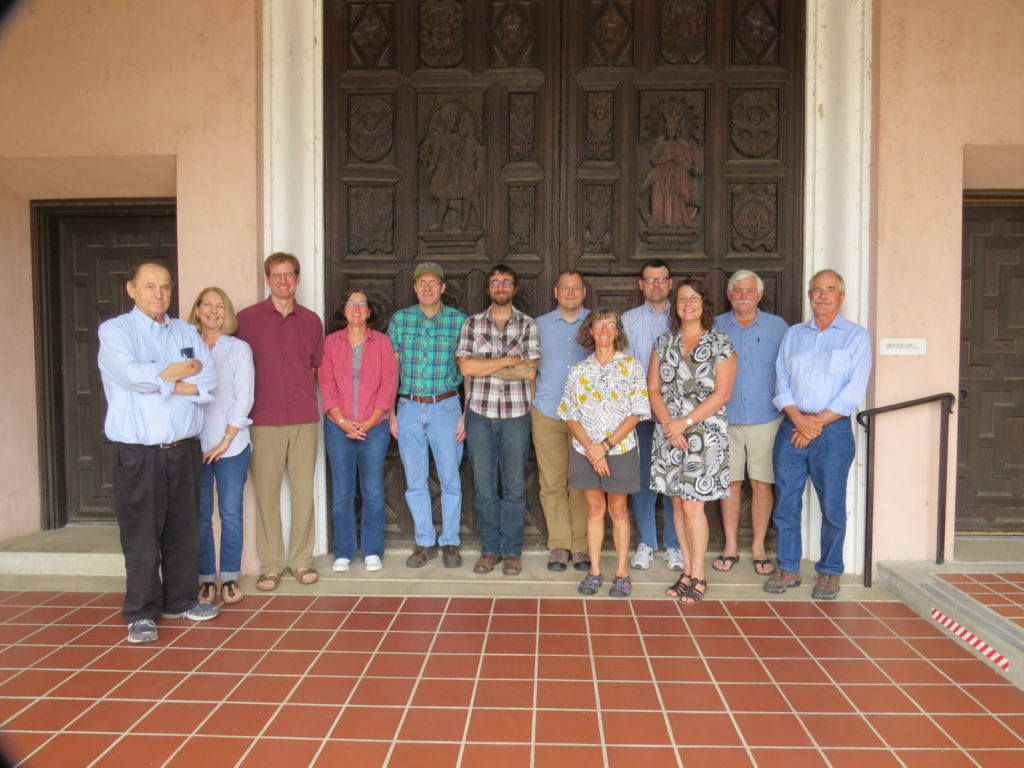- Home
- >
- Press Releases/Announcements
- >
- What Archaeology Can Tell Us about Migration
What Archaeology Can Tell Us about Migration
Past societies hold lessons relevant to contemporary concerns
Tucson, Ariz. (December 6, 2018)—Archaeology Southwest is pleased to announce the publication of an important paper examining human migration in deep time. “Resolving the migrant paradox: Two pathways to coalescence in the late precontact U.S. Southwest,” was published online in the Journal of Anthropological Archaeology on December 5, 2018. Led by Preservation Archaeologist Jeffery J. Clark of Archaeology Southwest, the multi-authored study compares and contrasts two Ancestral Pueblo migrations (Kayenta and Mesa Verde) in the American Southwest and their long- and short-term impacts in destination areas. Co-authors include Jennifer A. Birch (University of Georgia), Michelle Hegmon (Arizona State University), Barbara J. Mills (University of Arizona), Donna M. Glowacki (University of Notre Dame), Scott G. Ortman (University of Colorado at Boulder), Jeffrey S. Dean (University of Arizona), Rory Gaulthier (Bandelier National Monument, retired), Patrick D. Lyons (Arizona State Museum), Matthew A. Peeples (Arizona State University), Lewis Borck (Leiden University), and John A. Ware (Amerind Foundation, retired).

The paper developed out of a three-day advanced seminar hosted by the Amerind Foundation (Dragoon, Arizona) in September 2015 to synthesize the results of several National Science Foundation-funded projects. Participants in the symposium presented on aspects of social theory and on archaeological research relevant to each migration. Individual presentations were followed by lively discussion. The Kayenta, left the western Four Corners area of the Colorado Plateau in the late 1200s and some migrated south into basin and range country of southern Arizona and southwestern New Mexico. Mesa Verde groups examined by the symposium largely left southwestern Colorado and migrated to the northern Rio Grande area.
“The archaeological record provides a long-term, unbiased view of migration outcomes that places the modern migration ‘crisis’ in perspective,” said Clark. “In fact, migrants are often viewed as both disruptive and beneficial, a challenge faced by all multicultural societies. This is the crux of the migrant paradox we reference in the title of our article.”
By comparing the two ancient migrations, scholars were able to discern important differences that helped shape the outcomes of each case, which were generally positive. These factors, which include social organization and identity prior to migration, as well as relative social distance between the migrants and existing local communities, also characterize migration episodes across the world today.
“Migration crises are often short and more perceived than real,” explained Clark. “After getting over an initial period of migrant–local tensions, most migrations are beneficial to society. Coalescence, or coming together of groups from diverse cultural backgrounds, is a multigenerational process that cannot be objectively evaluated as it is happening.”
An explicit goal of the seminar was to publish the group’s findings regarding the archaeological case studies and their relevance for migration studies more broadly.
Access the article abstract and outline here.
ABOUT ARCHAEOLOGY SOUTHWEST
Archaeology Southwest is a private 501(c)(3) nonprofit organization based in Tucson, Arizona, that explores and protects the places of our past across the American Southwest and Mexican Northwest. For three decades, Archaeology Southwest has fostered meaningful connections to the past and respectfully safeguarded its irreplaceable resources. Learn more at archaeologysouthwest.org.
Explore the News
FOR IMMEDIATE RELEASE
Contact: Jeffery Clark
jclark@archaeologysouthwest.org